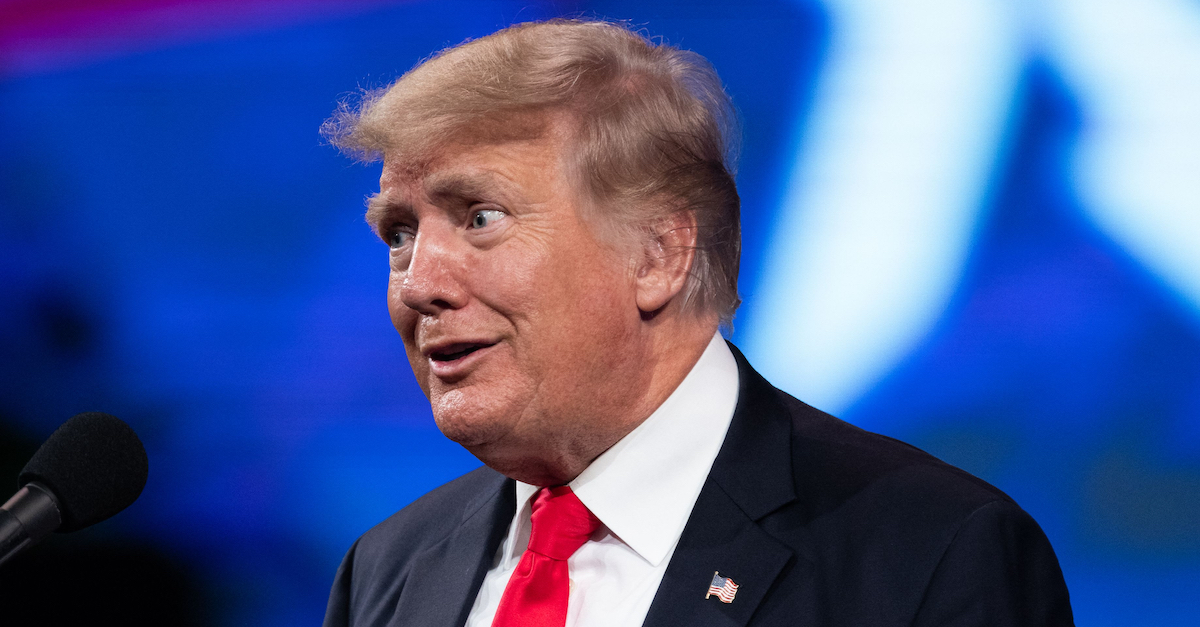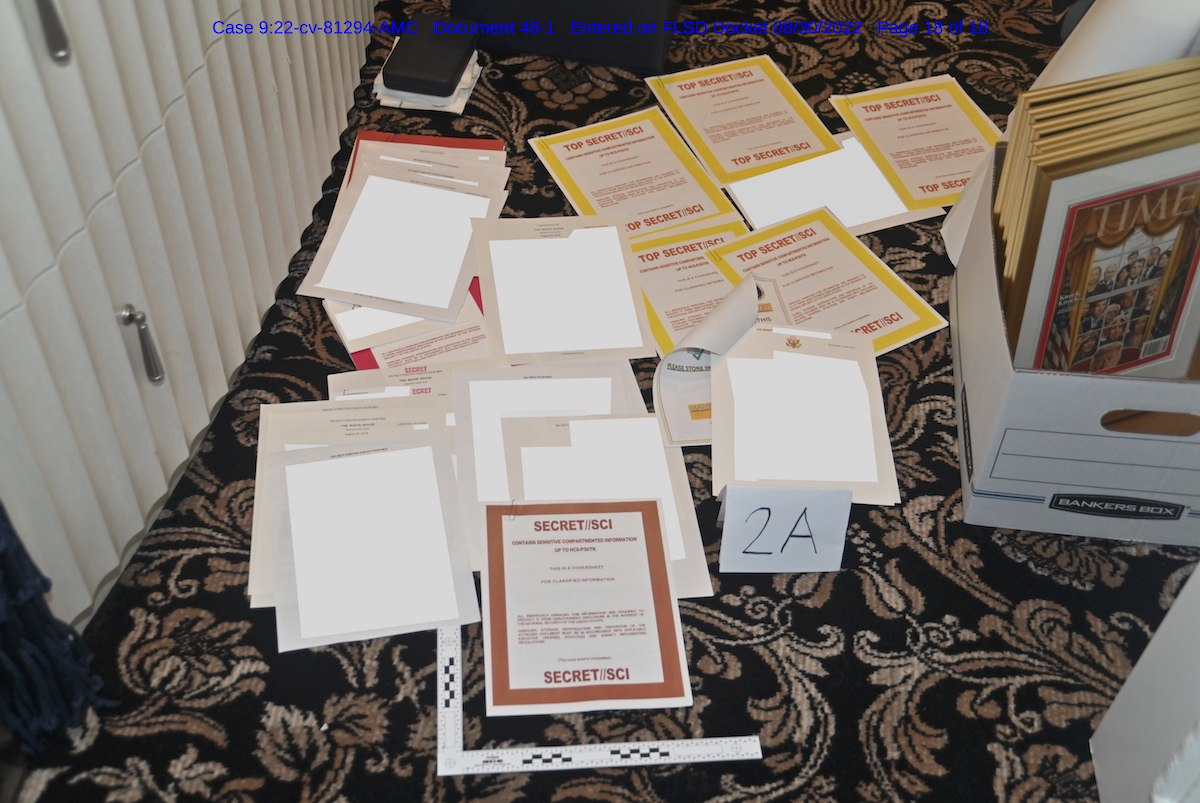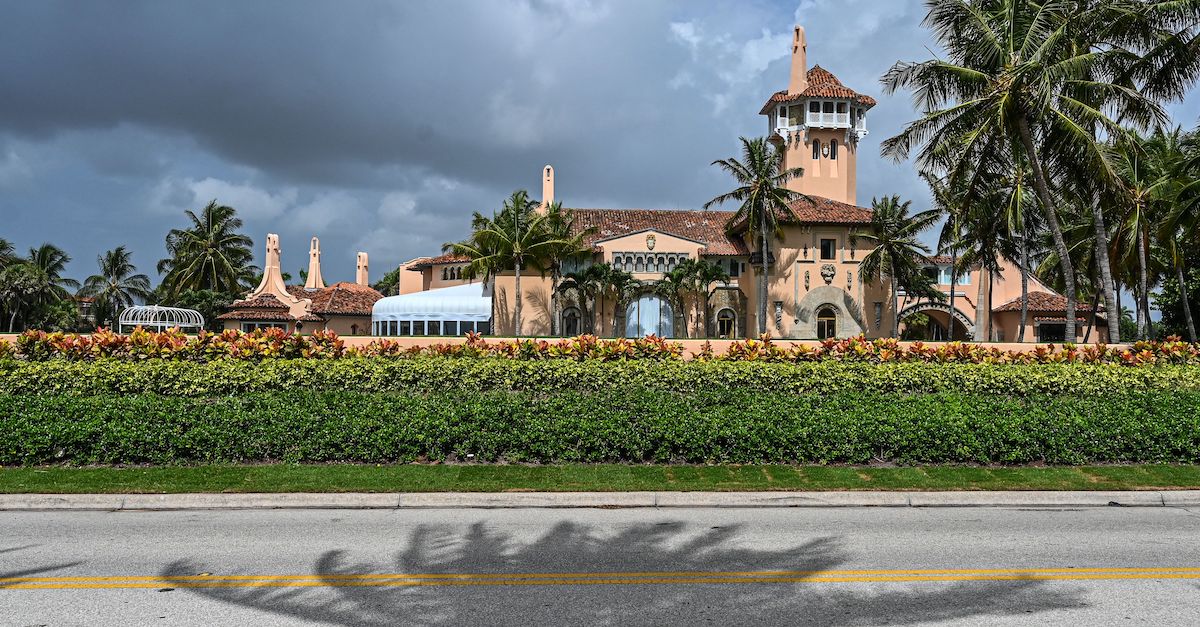
Former President Donald Trump spoke in Dallas, Texas on July 11, 2021. (Photo by Andy Jacobsohn/AFP via Getty Images.)
The federal district court judge overseeing Donald Trump’s demands for relief after FBI agents executed a search warrant at Mar-a-Lago has refused to rule from the bench on the former president’s request for a special master to oversee the materials seized.
The decision to reserve ruling on the matter came during a 1 p.m. Thursday hearing called by U.S. District Judge Aileen Cannon. The case involves an Aug. 5 warrant and a subsequent Aug. 8 search and seizure of documents the government argues are secret and/or classified from Mar-a-Lago.
Judge Cannon said she would file a written ruling at some point in the future, according to reports from Reuters and from MSNBC.
However, Politico reporter Kyle Cheney said that Cannon appeared “poised” to grant several requests from Trump’s attorneys.
NEWS: A judge appeared poised to restrict DOJ’s access to materials seized from Trump’s Mar-a-Lago estate while a special master reviews it, @joshgerstein reports from Florida.
Judge Cannon said she might carve out an exception to allow ODNI review to continue.
Details TK
— Kyle Cheney (@kyledcheney) September 1, 2022
A search warrant affidavit unsealed on Aug. 26 says the FBI opened a “criminal investigation” into, “among other things,” how the documents in question were removed from the White House or any other secured location.
Trump’s attorneys filed a motion for oversight before Judge Cannon on Aug. 22 — before the affidavit was unsealed. The filing asked the judge to do the following: (1) to appoint a special master to review the material seized from the ex-president’s palatial estate, (2) to enjoin the review of seized material until a special master was appointed, (3) to require the government to provide a detailed receipt of the property seized, and (4) to require the government to return any item seized beyond the scope of the warrant.
Judge Cannon suggested on Aug. 27 a “preliminary” intent to appoint a special master but ordered the government to issue formal responses to the motion for oversight before making a final determination. At Thursday’s hearing, Cannon reportedly seemed intent to remain on that track. She also said — to quote Politico’s retelling of her thoughts — that she would consider “temporarily barring” the U.S. Department of Justice from reviewing the fruits of the warrant for now.
My takeaway from Trump special master hearing in Mar-a-Lago: Judge is considering an order that could temporarily put all the records seized there off limits to DOJ investigators for a period of time. Story w/@kyledcheney & @nicholaswu12 https://t.co/IreuLdKSuq
— Josh Gerstein (@joshgerstein) September 1, 2022
Federal prosecutors reportedly said that the ongoing probe into what happened at Mar-a-Lago involved “evidence of three significant federal crimes.”

Federal prosecutors say FBI agents seized these materials from Mar-a-Lago. The contents of the documents were redacted with white squares. (Image via an Aug. 31, 2022 federal court filing.)
The government responded on Aug. 30 that no special master was necessary to sort out privileged material because a separate review team operating under a different area of law had already engaged in that process. To the utter annoyance of Trump’s attorneys, the government continued to review the material, rendering the second request somewhat moot. The government provided a rather hearty assurance that a fulsome receipt would be provided and suggested that some of the other materials seized were necessary to prove parts of an apparently burgeoning case — such as who had possession of the documents in question.
Trump’s attorneys responded on Aug. 31 that their ultimate litigation strategy would play out as follows: Trump “intends to challenge” the search as a “violation of the Fourth Amendment and the Presidential Records Act.” Therefore, they wrote, the items seized are “thus subject to return (to the Movant or to his designee) under Federal Rule of Criminal Procedure 41(g).”
In other words, Trump wants the material back, but the government says it’s not his to begin with.

Former U.S. President Donald Trump’s residence at Mar-A-Lago, in Palm Beach, Florida, was photographed on August 9, 2022. (Photo by Giorgio Viera/AFP via Getty Images.)
Trump has argued on social media that he “declassified” the secret material, but his attorneys on Wednesday said that any special master appointed in the matter should hold the proper security clearances.
The dispute between the parties has at times involved which laws apply. While Trump’s attorneys have asserted that the matter is a common dispute involving the Presidential Records Act, the U.S. Department of Justice has proffered three other statutes — 18 U.S.C. §§ 793, 2071, and 1519 — as the gravamen of the action. Those statutes are portions of the Espionage Act, a federal records act, and an obstruction of justice statute.
This is a developing story.